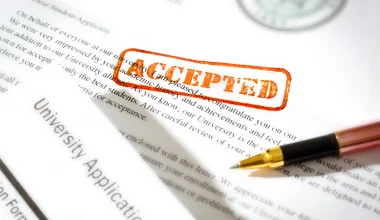In the vast and ever-evolving world of cosmetics, there is a vital role played by cosmetic product testers. A Cosmetic Product Tester contributes significantly to developing and improving cosmetic products. They play a crucial role behind the scene, in ensuring the quality, efficacy, and safety of cosmetic formulations.
These diligent individuals possess a unique set of qualifications and skills, employing advanced testing techniques to evaluate the products we use on our bodies.
If you’ve ever wondered what it takes to become a Cosmetic Product Tester or whether it’s a legitimate profession, this article will provide you with all the answers.
In this piece, we will explore the responsibilities of cosmetic product testers, the testing process, regulatory considerations, and the future of this vital field.

Table of contents
Who is Cosmetic Product Tester?
A Cosmetic Product Tester is an individual who is responsible for evaluating and testing cosmetic products before they hit the market. They are crucial in ensuring various beauty and personal care items’ safety, effectiveness, and quality.
These testers are employed by cosmetic companies to meticulously assess the performance, texture, fragrance, and overall user experience of their products. Their valuable feedback aids in refining formulations, addressing potential issues, and ultimately enhancing the end-user experience.
Why Does Cosmetic Hire Product Testers?
Cosmetic companies hire Product Testers to ensure their products meet the highest quality and customer satisfaction standards.
By conducting rigorous testing, these companies can identify any potential flaws, assess the product’s performance, and make necessary improvements before the product is made available to the general public.
The feedback provided by Product Testers is invaluable in refining the product and making it safe, effective, and appealing to consumers.
Also, see How To Become An Under Armor Product Tester
Is Cosmetic Product Tester Legit?
Yes, Cosmetic Product Testing is a legitimate profession. Cosmetic companies invest significant resources in research and development, which involves conducting thorough product testing.
These companies are committed to ensuring the safety and efficacy of their cosmetics, and the role of Cosmetic Product Testers is pivotal in achieving this goal.
However, it’s important to note that legitimate Cosmetic Product Testing should adhere to ethical guidelines and prioritize the well-being of the testers.
What are the Eligibility Requirements for Cosmetic Product Tester?
While specific eligibility requirements may vary depending on the company and the nature of the products being tested, there are some familiar qualifications sought after in Cosmetic Product Testers:
- Knowledge of sciences: Becoming a skilled cosmetic product tester requires more than a passion for beauty. These professionals often hold degrees in chemistry, pharmaceutical sciences, or a related discipline.
This educational foundation equips them with a solid understanding of chemical compositions, interactions, and potential effects on human skin and hair. - In-depth knowledge of cosmetic ingredients, formulations, and industry regulations.
- Strong attention to detail and observational skills.
- Good communication skills to provide accurate feedback and reports.
- A willingness to try various cosmetic products and provide honest feedback.
- Compliance with safety protocols and ethical standards.
- Furthermore, comprehensive knowledge of regulatory requirements and safety standards is crucial for cosmetic product testers. They must stay current with the ever-evolving regulations and guidelines set forth by authorities such as the FDA (Food and Drug Administration) and international regulatory bodies.
This ensures that the products they evaluate comply with legal requirements, safeguarding consumers from potential harm.
What is the Role of a Cosmetic Product Tester?
At its core, a cosmetic product tester is an expert in assessing the quality, safety, and effectiveness of beauty and skincare formulations.
They employ their knowledge and expertise to meticulously evaluate various products, ranging from moisturizers and makeup to hair care and fragrances.
Their evaluations provide valuable insights to cosmetic companies, helping them refine their formulations and deliver high-quality products to consumers.
To excel in this role, cosmetic product testers must possess a deep understanding of cosmetic ingredients and formulations.
With a strong educational background in chemistry or related fields, they are well-equipped to analyze the intricate components of a product and determine its efficacy.
Their attention to detail and analytical skills enable them to identify the slightest variations or potential issues within a formulation.
What are the Benefits of Cosmetic Product Testing?
The work of cosmetic product testers yields significant benefits for both cosmetic brands and consumers.
- By conducting rigorous product testing, cosmetic product testers ensure the safety and quality of beauty formulations. This, in turn, builds consumer trust and confidence in the products they choose to use.
- Ensuring product safety is paramount in the cosmetics industry. Through meticulous testing, cosmetic product testers identify potential risks, such as skin irritations or allergic reactions, before a product reaches the market.
By mitigating these risks, they contribute to the overall safety of cosmetic products, safeguarding consumers from potential harm. - In addition to safety, cosmetic product testers play a crucial role in enhancing product performance and efficacy. By conducting thorough performance testing, they assess whether a product delivers on its intended claims.
This includes evaluating factors such as moisturization, anti-aging effects, or color vibrancy. The insights gained from these tests enable cosmetic companies to refine their formulations and create products that truly deliver results. - Professional product testing also contributes to building a brand reputation. When a cosmetic product undergoes rigorous testing and meets the highest safety and quality standards, it earns consumers’ trust.
This trust leads to brand loyalty, positive word-of-mouth recommendations, and ultimately, long-term success in the market. Cosmetic product testers play a pivotal role in establishing and maintaining this trust by ensuring that products are thoroughly evaluated before they reach the hands of consumers.
Related Post: How To Become A Makeup Product Tester In 2023 | Full Guide
What is the Cosmetic Product Testing Process?
The journey of a cosmetic product tester begins with the preparation of test samples and protocols. They meticulously follow established guidelines to ensure consistency and accuracy throughout the testing process. This attention to detail ensures that the results obtained are reliable and reproducible.
Conducting tests is a multi-faceted process that involves various types of evaluations. Stability tests assess the product’s ability to withstand different environmental conditions, such as temperature fluctuations and exposure to light.
Efficacy tests gauge the product’s intended benefits, such as moisturization, wrinkle reduction, or sun protection. Safety tests examine the potential for adverse reactions, irritability, or allergies when applied to the skin or eyes.
Throughout the testing process, cosmetic product testers maintain detailed documentation and records. These records serve as a valuable reference for future analyses, comparisons, and reporting.
Collaboration with other professionals, such as formulators and dermatologists, is common, allowing for a comprehensive evaluation from different perspectives.
To identify and address potential risks, cosmetic product testers conduct safety and irritability tests. These tests assess the product’s potential to cause adverse reactions, such as skin irritation, redness, or allergic responses.
Through rigorous testing, they identify potential issues and recommend necessary modifications to mitigate risks and ensure the safety of the end users.
How to Become an/a Cosmetic Product Tester
If you aspire to become a Cosmetic Product Tester, here are some steps you can take to pursue this career path:
- Acquire relevant knowledge: Familiarize yourself with cosmetic ingredients, product formulations, and industry trends. Stay updated on regulatory guidelines and safety standards.
- Gain experience: Seek opportunities to work in the cosmetic industry, whether through internships, entry-level positions, or volunteering. This will provide practical knowledge and enhance your understanding of the industry.
- Develop observational skills: Pay attention to details, textures, fragrances, and overall performance of cosmetic products you use daily. This will help you develop a discerning eye and an ability to identify nuances in product quality.
- Network: Connect with professionals in the cosmetic industry, attend industry events, and join relevant online communities. Networking can open doors to potential opportunities and provide valuable insights.
- Apply for Cosmetic Product Tester positions: Look for job openings at cosmetic companies or contract testing laboratories. Submit your resume and cover letter, highlighting your relevant experience, knowledge, and passion for cosmetics.
Do Cosmetic Product Testers Get Paid?
Yes, Cosmetic Product Testers typically receive compensation for their services. The payment structure may vary depending on factors such as the company, the nature of the testing, and the tester’s experience level.
Some Cosmetic Product Testers may be paid hourly, while others receive a flat fee per testing project. The compensation may also vary depending on the complexity and duration of the testing process.
It’s important to note that while some product testing opportunities may offer monetary compensation, others may provide testers with free samples of the products they evaluate.
Are there available Cosmetic Product Tester Jobs?
Various opportunities are available for individuals interested in becoming Cosmetic Product Testers. Cosmetic companies, research laboratories, and contract testing organizations often advertise openings for these positions.
Job boards, company websites, and industry-specific platforms can be excellent resources for finding Cosmetic Product Tester jobs.
It’s essential to regularly check these sources and tailor your applications to highlight your relevant skills and experience. Some of the available jobs for cosmetic product testers include;
- Lab Tester: $15 – $20 an hour
- Quality Tester: $16 – $35 an hour
- Cosmetics Operating Assistant: $18.70 – $30.25 an hour
- Retail Cosmetics Sales Beauty Advisor: $15 – $21 an hour
- Retail Cosmetics Stock – Beauty Merchandiser: $16.50 – $20.35 an hour
Related Post: How To Become A Hair Product Tester In 2023 | Full Guide
Cosmetic Product Tester Salary
The salary of a Cosmetic Product Tester can vary based on several factors, including the tester’s level of experience, the company’s size and location, and the specific responsibilities involved.
On average, the salary for a Cosmetic Product Tester ranges from $30,000 to $50,000 per year. However, it’s important to note that entry-level positions may offer lower salaries, while experienced testers or those in supervisory roles may earn higher wages.
Also, freelancers or independent contractors may charge hourly rates for their services.
Can I Become a Cosmetic Product Tester from Home?
Yes, it is possible to become a Cosmetic Product Tester from the comfort of your own home. With the advancement of technology, many cosmetic companies and testing organizations now offer remote testing opportunities.
This allows testers to evaluate products and provide feedback without physically being present at a testing facility. Remote testing may involve receiving product samples, using them as instructed, and submitting detailed feedback and reports electronically.
Remember that remote testing positions may have specific requirements, such as access to a computer, an internet connection, and the ability to communicate effectively through digital channels.
What is the Average Salary for a Cosmetic Product Tester?
The average salary for a Cosmetic Product Tester can vary depending on location, experience, and the specific company or organization.
A full-time Cosmetic Product Tester can earn between $30,000 and $50,000 annually. However, it’s important to note that salaries can exceed this average.
Some testers make higher wages based on their expertise, years of experience, and the complexity of their testing projects.
Cosmetic Product Tester Program
To further enhance your skills and knowledge in the field of Cosmetic Product Testing, consider enrolling in a Cosmetic Product Tester program.
These programs are designed to provide comprehensive training and education on various aspects of product testing, including safety regulations, quality control measures, and effective evaluation techniques.
Look for accredited programs or certifications offered by reputable institutions or organizations within the cosmetic industry. Completing such a program can demonstrate your commitment to the profession and increase your chances of securing desirable testing positions.
Related Post: How to Become a Puma Product Tester in 2023 | Full Guide
Best Cosmetic Product Tester Club
The Best Cosmetic Product Tester Club is an exclusive community that brings together Cosmetic Product Testers, industry professionals, and enthusiasts.
This club offers several benefits, such as networking opportunities, access to industry insights, and the chance to participate in specialized training and workshops.
By joining this club, you can connect with like-minded individuals, stay updated on the latest trends, and further enhance your skills as a Cosmetic Product Tester.
What are the challenges of a Cosmetic Product Tester?
While cosmetic product testing is crucial for product safety and efficacy, it does come with its fair share of challenges and limitations.
- One challenge cosmetic product testers face is the availability of test subjects or panels. Gathering a diverse group of participants for sensory evaluation or consumer testing can be time-consuming and resource-intensive.
However, this challenge can be overcome through effective recruitment strategies and partnerships with specialized research facilities. - Another challenge lies in the complexity of testing procedures and the interpretation of results. Cosmetic product testers must possess in-depth knowledge and expertise to navigate the intricacies of various testing methods.
Furthermore, interpreting the results requires a balance of scientific understanding and practical application, as the data obtained from tests must be translated into actionable insights for product development. - Cost implications can also be a limitation, particularly for small or independent cosmetic brands. Professional product testing involves expenses related to test samples, equipment, and specialized facilities.
However, these costs invest in ensuring product quality and consumer safety. Collaborations with third-party testing laboratories or consultants can provide cost-effective solutions for brands with limited resources.
Career Opportunities for Cosmetic Product Tester
For individuals passionate about beauty, a career as a cosmetic product tester offers exciting opportunities. Cosmetic testing laboratories provide a dynamic work environment where professionals can contribute to developing innovative and safe beauty products.
Job roles may include positions in research and development (R&D), quality control, or regulatory affairs.
Furthermore, individuals with expertise in cosmetic product testing can explore consulting and advisory roles within the industry. Consulting firms specializing in cosmetic testing offer their expertise to brands seeking guidance in product development, safety assessments, and regulatory compliance.
These professionals serve as valuable resources, providing insights and recommendations based on their extensive knowledge of testing methodologies and industry standards.
What is the Advanced Cosmetics Product Testing Techniques?
As technology advances, cosmetic product testers can access increasingly sophisticated testing techniques. In vitro testing methods involve studying the product’s effects on isolated cells or tissue cultures, providing valuable insights into its potential interactions at a cellular level.
These techniques offer a more comprehensive understanding of a product’s mechanisms of action and can help identify potential risks or benefits.
High-performance liquid chromatography (HPLC) analysis is another valuable tool in the arsenal of cosmetic product testers. This technique allows for the precise quantification and identification of various ingredients within a formulation.
HPLC analysis ensures the accuracy of ingredient claims and helps maintain product consistency and quality.
Microbiological testing and challenge testing assess the product’s resistance to microbial contamination. These tests ensure the formulation remains free from harmful bacteria, fungi, or other microorganisms that could pose a risk to consumers. By employing these advanced testing techniques, cosmetic product testers contribute to developing safe and microbiologically stable products.
Non-invasive testing methods have gained prominence in recent years. Technologies such as skin imaging and transepidermal water loss measurement offer objective and quantitative data on the product’s effects on the skin.
These non-invasive techniques provide valuable insights into hydration levels, barrier function, and overall skin health, allowing cosmetic product testers to assess the product’s performance without invasive procedures.
Related Post: How to Become an REI Product Tester in 2023 | Full Guide
What is the Future of Cosmetic Product Testing Business?
The field of cosmetic product testing is constantly evolving, driven by advancements in technology and consumer demands. One notable trend is the development and adoption of alternative testing methods.
As mentioned earlier, in vitro testing, computer modeling, and reconstructed human tissue cultures are gaining prominence as effective alternatives to animal testing. These approaches offer reliable data while promoting ethical and cruelty-free practices within the industry.
Integrating technology and data analysis is another growth area in cosmetic product testing. The use of advanced tools such as artificial intelligence, machine learning, and big data analytics enables cosmetic product testers to process vast amounts of information efficiently.
This allows for more accurate and insightful product performance, safety, and consumer preferences analysis.
Personalized product testing and customization are also emerging trends in the field. With a growing emphasis on individual needs and preferences, cosmetic product testers are exploring ways to tailor products to specific consumer demographics or skin concerns.
This includes evaluating the efficacy of personalized skincare regimens or developing products that adapt to specific environmental conditions.
Tips on How to get selected to be a Cosmetic Product Tester
- Build your knowledge: Stay informed about the cosmetic industry, including new ingredients, formulations, and emerging trends. Understanding the market will make you a valuable asset as a tester.
- Develop a discerning eye: Train yourself to notice even the subtlest differences in product texture, scent, and performance. Attention to detail is crucial in product evaluation.
- Enhance your communication skills: As a Cosmetic Product Tester, effective communication is essential. Practice articulating your observations and feedback clearly, concisely, and professionally. This skill will help you provide valuable insights to the companies you work with.
- Stay updated on regulations: Familiarize yourself with the latest cosmetic rules and guidelines to ensure your evaluations align with industry standards. Companies value testers who understand and adhere to these regulations.
- Gain experience through internships or volunteering: Look for opportunities to gain hands-on experience in cosmetic product testing. Internships or volunteer positions at cosmetic companies, research laboratories, or testing organizations can provide valuable practical experience and increase your chances of being selected for future testing roles.
- Network within the industry: Attend industry events, join professional associations, and engage with cosmetic professionals on social media platforms. Networking can open doors to potential opportunities, connect you with industry experts, and inform you about upcoming testing projects.
- Build a robust online presence: Create a professional profile highlighting your skills, experience, and passion for cosmetic product testing.
Showcase your knowledge through blog posts, social media content, or video tutorials. This online presence can help you stand out and attract the attention of potential employers.
FAQs
Age restrictions may vary depending on the company and the nature of the testing. Some companies may require testers to be at least 18 years old, while others may have different age requirements based on legal and safety considerations.
While a scientific background can be beneficial, it is only sometimes a requirement. Basic knowledge of cosmetic ingredients, formulations, and safety regulations can be acquired through research, training programs, and on-the-job experience.
Having sensitive skin can be an advantage as a Cosmetic Product Tester. Testers with different skin types, including sensitive skin, are valuable in evaluating product compatibility and potential irritations.
1. Apply the product to a test spot twice daily for seven to 10 days.
2. Leave the product on your skin for as long as you would normally.
3. If after seven to 10 days you don’t have a skin reaction, such as red, itchy, or swollen skin, go ahead and use the product.
Counterfeit products will often have uneven fonts, misspelled words, inconsistent patterns, and incorrect shade names printed on the label and leaflets, so cross-check the item with the one on the brand’s official website.
Conclusion
Becoming a Cosmetic Product Tester can be a rewarding and fulfilling career choice for those passionate about the beauty industry. As a tester, you ensure cosmetic products’ quality, safety, and effectiveness.
Following the outlined steps, continuously improving your knowledge and skills, and staying updated on industry trends can increase your chances of becoming a sought-after Cosmetic Product Tester.
Dedication, attention to detail, and effective communication are crucial to thriving in this field. Embrace the opportunity to contribute to developing innovative and consumer-friendly cosmetic products as a Cosmetic Product Tester.
References
- free-cosmetic-testing.com/en/
- ziprecruiter.com/career/Beauty-Product-Tester/
- indeed.com/q-Cosmetics-Product-Tester-jobs.html




